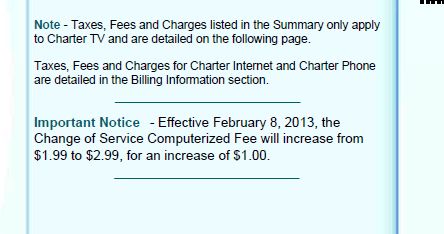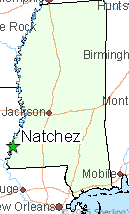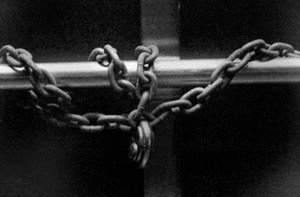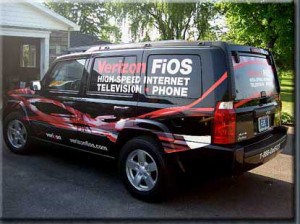
Image: schvdenfreude
Chattanooga Comcast and AT&T U-verse customers will need to open their wallets a bit more in 2013 as both the cable and phone company have announced new rate hikes that are now taking effect. But not everyone will pay more. Customers of EPB Fiber, which offers up to 1,000/1,000Mbps broadband and is a service of the publicly-owned electric utility is keeping prices stable until further notice.
Comcast customers face new increases averaging 4% in 2013 — $5 a month for Triple Play customers, several dollars more for broadband, and around $1 for basic cable service. Customers on promotions are unaffected until the temporary pricing expires.
AT&T U-verse customers will see price increases as much as $9 a month for television and broadband service.
Chattanoogans who ditched both private providers for the public option are sitting pretty with absolutely no rate increases to pay at this time. Although negotiations with programmers are ongoing, and costs are rising, EPB says it won’t raise any rates unless it becomes absolutely necessary. The utility takes rate increases very seriously, bringing them directly to its board of directors for approval.
Comcast and AT&T said the introduction of new services and increased programming costs contributed to their need to increase rates. Comcast says it has kept rates for its Xfinity service stable since 2010, a claim that doesn’t explain away its 4% rate hike in January 2012. AT&T said its supplier and labor costs also contributed to price increases, which also includes a broadband television surcharge.
If this seems like déjà vu, it could be because both AT&T and Comcast raised rates exactly one year ago this month. AT&T was the worst offender last year, boosting TV prices between $2-5 a month, equipment fees by $4-7 a month for broadband, and a $3 rate hike for its unlimited calling landline service. In comparison, EPB said it had no immediate plans to raise TV, broadband, or phone prices last year either.

EPB Fiber is the only Chattanooga telecom provider not raising its prices.
Customers facing rate increases can find an easy way to avoid them: threaten to take your business somewhere else. Retention agents are on the lookout for customers considering moving to another provider, and will usually slash rates to keep your business. Don’t want to argue your way to a lower rate or just want to say goodbye to Comcast and AT&T? Stop the Cap! highly recommends EPB Fiber, the most technologically advanced option in Tennessee, priced fairly with a proven track record of reliability.
A lot of Chattanooga area residents have already considered their options:
“Comcast is complete garbage,” writes one former customer. “Horrible product, even worse customer service. My Internet went out daily. I switched to EPB as fast as I could and have never been happier. I wouldn’t have Comcast again if it was free for the rest of my life.”
Another former cable customer reminds Comcast competition makes all the difference. He switched to EPB as well:
“Keep your Xfinity Comcast, you treated me like dirt when there was no other choice for cable. Now that I have that choice, I’ll never consider you again.”



 Subscribe
Subscribe Cable subscribers in Natchez, Miss. are scratching their heads wondering why AT&T will neither confirm nor deny whether its fiber to the neighborhood U-verse service is coming to a neighborhood near them.
Cable subscribers in Natchez, Miss. are scratching their heads wondering why AT&T will neither confirm nor deny whether its fiber to the neighborhood U-verse service is coming to a neighborhood near them.


 Time Warner Cable is expanding its footprint in the capital region of New York with the acquisition of independent Princetown Cable Company, which serves around 600 subscribers in Princetown, Duanesburg and Rotterdam in Schenectady County.
Time Warner Cable is expanding its footprint in the capital region of New York with the acquisition of independent Princetown Cable Company, which serves around 600 subscribers in Princetown, Duanesburg and Rotterdam in Schenectady County. While a lot of people would love to get Verizon to wire their communities for the company’s fiber optic network, at least three New York City multi-dwelling unit property owners have told Verizon to get lost, in some cases telling the company none of their tenants were interested in the top-rated fiber to the home network, even as they remain without phone service three months after Hurricane Sandy damaged Verizon’s facilities in the city.
While a lot of people would love to get Verizon to wire their communities for the company’s fiber optic network, at least three New York City multi-dwelling unit property owners have told Verizon to get lost, in some cases telling the company none of their tenants were interested in the top-rated fiber to the home network, even as they remain without phone service three months after Hurricane Sandy damaged Verizon’s facilities in the city. boneheads that own my building that nobody was interested,” says Brad, a Stop the Cap! reader in Manhattan. “The morons at the property management company don’t have a clue or they want money from Verizon in return for the keys. Meanwhile, there is no dial tone and Verizon says they are at an impasse until the property owners, who obviously don’t care, let them in to do repairs.”
boneheads that own my building that nobody was interested,” says Brad, a Stop the Cap! reader in Manhattan. “The morons at the property management company don’t have a clue or they want money from Verizon in return for the keys. Meanwhile, there is no dial tone and Verizon says they are at an impasse until the property owners, who obviously don’t care, let them in to do repairs.”
